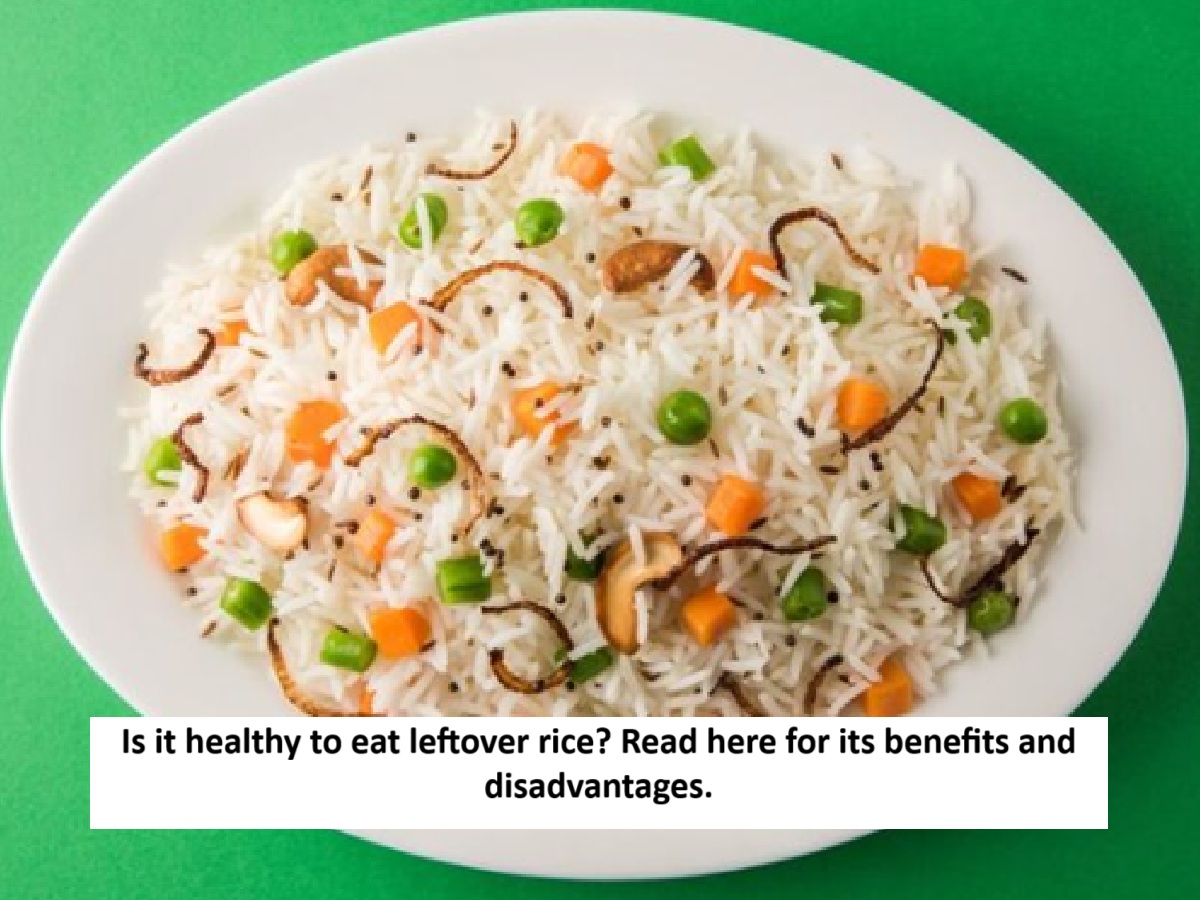
News Topical, Digital Desk : Sometimes we overcook or, for some reason, have leftover food, which we use later. This includes rice. Sometimes we eat leftover rice the next day. But this begs the question: is it safe to eat leftover rice?
The answer is both yes and no. Eating leftover rice can be beneficial if stored properly. Failure to do so can lead to serious health problems.
Is it beneficial to eat leftover rice?
- Nutrient availability: Leftover rice, when stored properly, retains its nutrients, such as carbohydrates, B vitamins, and minerals. It is a good source of energy.
- Resistant starch – This is considered the biggest health benefit of leftover rice. When freshly cooked rice is allowed to cool, it forms a special type of starch called "resistant starch." This starch is not digested in our bodies and acts like fiber in the intestines.
- Aids in digestion – It provides food for the good bacteria in the intestines, which keeps the digestive system healthy .
- Controlling blood sugar – Resistant starch prevents blood sugar levels from rising suddenly , which can be beneficial for type 2 diabetes patients.
- Weight Management- It keeps the stomach feeling full for a longer period of time, which reduces the chances of overeating and helps in weight loss.
Disadvantages of eating leftover rice
The biggest risk associated with leftover rice is food poisoning. This risk is caused by improper storage of rice.
- Bacterial Infections - Uncooked rice often contains spores of the Bacillus cereus bacteria. Cooking doesn't destroy these spores. When rice is left to cool at room temperature after cooking, the bacteria multiply rapidly and produce a toxin. This toxin isn't killed by reheating.
- Food poisoning - Eating rice contaminated with this bacteria can cause serious problems, including diarrhea, vomiting, and stomach cramps. These symptoms usually appear within 1 to 5 hours.
- Loss of nutrients – Reheating leftover rice can reduce the amount of some of the water-soluble vitamins present in it.
Read More: Why do you feel sleepy again and again after lunch, is this a symptom of some disease?
--Advertisement--

 Share
Share



